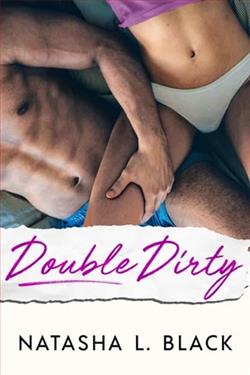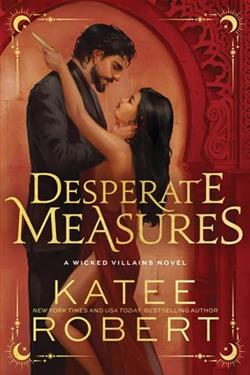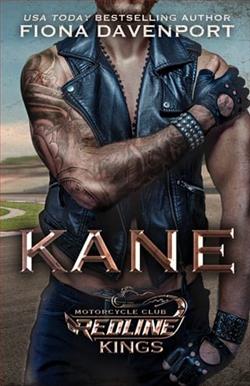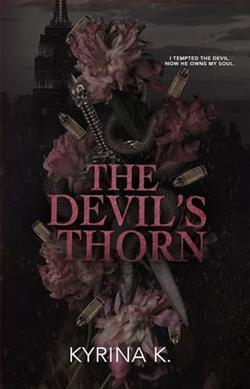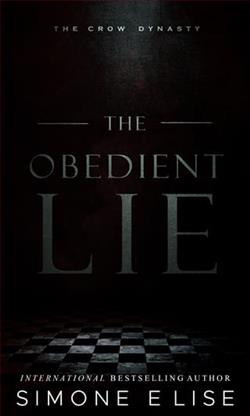Page 22 of Jackie
“I like how it fuels my mind. Every day is a new puzzle I get to build out, then solve.”
He laughs and starts to ask something else. Then doesn’t. We talk about books. Books, I’ve come to see, are safe common ground: other people’s stories, words, lives.
“Did you read the new Hemingway?” I ask.
“About the Cuban fisherman. Not yet. On my list for November fifth.”
“You must have quite a November fifth list.”
“How about we go see the movie Snows of Kilimanjaro,” he says.
“I didn’t like it.”
“You saw it without me?”
It surprises me he’d put it that way.
“They completely changed the ending,” I say. “It was awful. They made it happy, which obscured the whole point of the story. In the film he’s a hero, handsome but dull. In the story, he’s so much more interesting—you can’t tell what he really wants. You can’t tell if he loves her.”
“That makes him sound weak.”
“No, but he’s conflicted. That’s what makes the story good. He’s conflicted about what he’s done with his life and if there’s meaning. That’s why he lashes out at her.”
“He’s dying,” Jack says.
“Which doesn’t give him the right to be cruel.”
“He knows he can’t keep her, so he doesn’t try. That wouldn’t be fair to her.”
“You think that’s for him to decide?”
“Who cares,” he says sharply, then, “It doesn’t matter, Jackie. Christ, it’s just a story.”
I’m angry. It hits in a wave. Tired of him wanting only as much as he wants when he wants it. I keep falling for him, believing he’ll let me in, then out of nowhere he’ll shut down, take off.
“Funny you should put it that way, Jack, saying it doesn’t matter. I was thinking the other day about those words you told me your father lives by, how it doesn’t matter what you are, it only matters what people think you are.”
I don’t look up. The air has tightened. I stare at the ground ahead of us. Two men walk by. Two pairs of trousers and brown shoes. “I’ve decided I disagree,” I say. “I like your father very much, but when you’re his age, Jack, I don’t think you’ll be looking back wishing you’d been a little more of what other people thought you ought to be.”
His hand closes on my wrist, so fast it startles me. The grip isn’t tight. By contrast, it’s loose in a way that feels like a threat. Then he lets go and looks away. A stony pressure in the silence. I’ve pushed too far, and I feel sad but at the same time a sense of closure. Things between us were always too close to the edge. Now it’s done. I won’t have to wait anymore for the phone to ring.
The noises nearby seem suddenly loud. Two girls skipping down the path, a mother scolding her child, those boys still throwing sticks into the rage of water flowing under the bridge. I hate how raw it feels to me—that night in the car on the way back to the house on the Fourth of July, his smile in the light off the dash as he slowed to pull off the road, his mouth on mine. I could tell him now how I’ve wanted to be back in that car, that moment, that simple and intimate passion. I want the way he looked at me that night as he pulled the car to the side of the road and drew me toward him, the way he touched me. I want it all, all over again, that night, that hour, that sense of my body under his.
I could tell him this. I could soften now, apologize.
I push the thought off. I look at my watch without seeing it and stand.
Jack
It picks at him for days after. That stupid exchange about Hemingway. That argument over nothing that suddenly escalated into something. He should have kept things light.
—
She’s not like other women. She’s read just about everything and remarked once, like she was commenting on the weather, how a story told the right way could blow time apart.
She’ll come out with things like that, things he’ll find himself mulling over weeks later in ways that make him want to see her again. At the same time, there’s something too smart, almost maddening about her, and in that conversation on the bench, he felt her push, and he fell right into it, let his cool break down, grabbing her wrist like that. Like some pawn in a dime-store romance who’d just been played.
—









